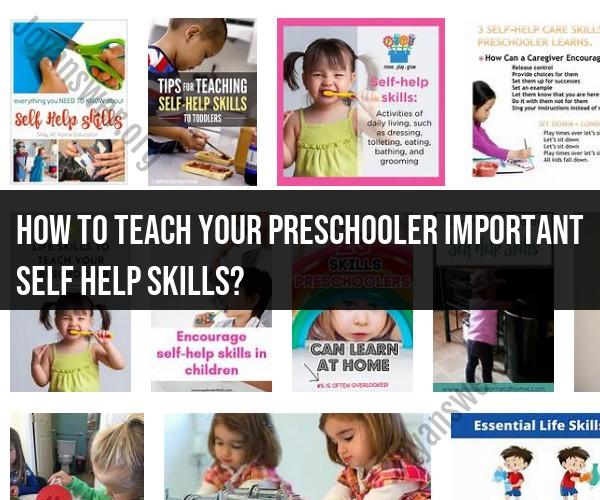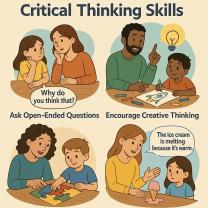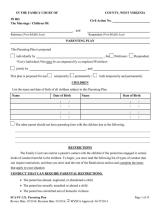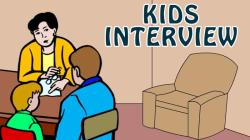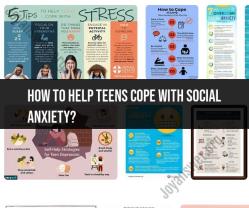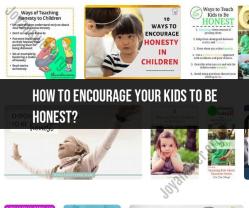How to teach your preschooler important self help skills?
Teaching important self-help skills to preschoolers is a valuable part of their early development. These skills promote independence, confidence, and a sense of responsibility. Here are some tips on how to teach self-help skills to preschoolers:
1. Start Early:
- Introduce self-help skills gradually, starting as early as age 2 or 3. Begin with basic tasks and gradually add more complex ones as they grow.
2. Be Patient:
- Understand that preschoolers are still developing fine motor skills and coordination. Be patient and provide plenty of encouragement and praise.
3. Provide Clear Instructions:
- Give simple, clear, and step-by-step instructions for each task. Use visual cues or demonstrations when possible.
4. Model the Behavior:
- Children learn by observing. Show them how to perform the task correctly and explain why it's important.
5. Encourage Independence:
- Allow your child to try tasks on their own, even if it takes longer or results in some mess. Offer assistance when needed but encourage them to persevere.
6. Use Positive Reinforcement:
- Offer praise and positive reinforcement when your child successfully completes a self-help task. Celebrate their efforts, even if they make mistakes.
7. Make It Fun:
- Turn self-help tasks into games or challenges to make them more engaging and enjoyable for preschoolers.
8. Establish Routines:
- Create consistent daily routines that include self-help tasks like getting dressed, brushing teeth, and washing hands. Predictable routines help children know what to expect.
9. Provide Tools and Supplies:
- Ensure that your child has access to the necessary tools and supplies for each task. For example, have a step stool available for them to reach the sink for handwashing.
10. Offer Choices:- Allow your child to make choices within certain limits. For instance, let them choose between two outfits to encourage decision-making.
11. Break Tasks into Smaller Steps:- Complex tasks like getting dressed can be broken into smaller, manageable steps. For example, first, put on underwear, then pants, and so on.
12. Be Safety-Conscious:- Teach your child about safety, such as using a step stool safely or handling scissors cautiously.
13. Provide Feedback:- Offer constructive feedback to help your child improve their skills. For instance, if they're learning to tie shoelaces, show them how to do it correctly and offer tips.
14. Set Realistic Expectations:- Understand that preschoolers are still developing their coordination and may not perform tasks as neatly or efficiently as adults. Focus on effort rather than perfection.
15. Be Consistent:- Maintain consistency in your expectations and routines. When children know what's expected of them, they are more likely to take initiative.
16. Teach Responsibility:- Emphasize the importance of taking care of their belongings, such as putting toys away or hanging up their coat.
17. Celebrate Achievements:- Celebrate milestones and achievements in self-help skills, whether big or small. It boosts their self-esteem and encourages further progress.
18. Foster Independence:- Encourage your child to do things for themselves whenever possible. This fosters independence and a sense of accomplishment.
19. Be Supportive:- Provide emotional support and reassurance. Let your child know that it's okay to make mistakes and that they can always ask for help if needed.
20. Gradual Increase in Responsibility:- As your child grows, gradually increase their responsibilities, such as making their bed or packing their own lunch.
Remember that every child develops at their own pace, so be flexible and adapt your teaching approach to your child's individual needs and abilities. Building self-help skills in preschoolers is an ongoing process that sets the foundation for their future independence and self-confidence.
